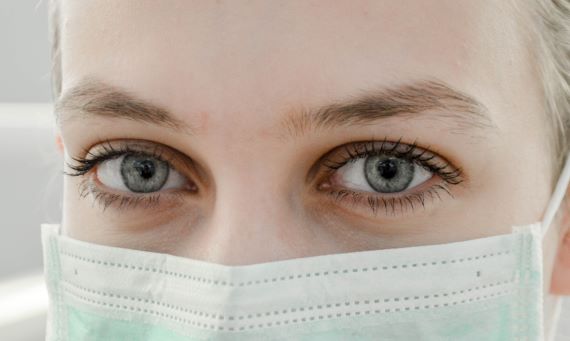
Immune Health
It seems timely to discuss whether Pilates helps to boost your immune system.
Just like a healthy diet, exercise can contribute to general good health and therefore to a healthy immune system. It may contribute even more directly by promoting good circulation, which allows the cells and substances of the immune system to move through the body freely and do their job efficiently.
Robyn Rix
PAA Treasurer & Research Chair
Impact of Exercise on Immunity
An article, Debunking the Myth of Exercise-Induced Immune Suppression: Redefining the Impact of Exercise on Immunological Health Across the Lifespan (2018) by John P. Campbell & James E. Turner emphasises that exercise — instead of dampening immunity — may instead be beneficial for immune health.
Exercise causes immune cells to change in two ways. Initially, during exercise, the number of some immune cells in the bloodstream can increase dramatically (up to 10 times), especially ‘natural killer cells’ (NK cells) which deal with infections. After exercise, some cells in the bloodstream decrease substantially — sometimes falling to levels lower than before exercise started, and this can last for several hours.
This was previously explained as immune-suppression but now strong evidence suggests that cells have not been ‘lost’ or ‘destroyed’, but rather have moved to other sites in the body that are more likely to become infected, such as the lungs.
The basis for this conclusion is that
- cells return to normal levels within several hours, which is far too quick for them be ‘replaced’ with new cells.
- studies in humans have shown that these cells have the ability to leave the bloodstream and travel to other body sites.
- studies with laboratory animals have shown that following exercise, labelled immune cells accumulate in the lungs, and other places.
The authors therefore suggest that low numbers of immune cells in the bloodstream in the hours after exercise, far from being a sign of immune-suppression, are in fact a signal that these cells, primed by exercise, are working in other parts of the body.
Impact of Exercise on Upper Respiratory Tract Infections
Another article, The compelling link between physical activity and the body’s defense system (2019) by David C. Nieman & Laurel M. Wentz establishes an interesting link between exercise & upper respiratory tract infections (URTI’s). As exercise workload increases, risk of infection drops but once the exertion becomes heavy, the risk of contracting an URTI increases, and can lead to a 2 to 6 fold increased risk.
Several epidemiologic studies suggest that regular physical activity is associated with decreased mortality and incidence rates for influenza and pneumonia. This must be carefully balanced with published reports of increased infectious disease severity when vigorous exercise was engaged in during active influenza or other viral infections.
Decreased Immunity with Age Reversed
Immunosenescence is defined as a decrease in immune regulation as we age, which leads to an increased susceptibility to infections, autoimmune diseases, etc. Recent evidence supports the view that lifestyle choices can positively mitigate immunity decreases during the aging process.
Early cross-sectional studies compared immune function in highly conditioned and sedentary elderly men and women. One study Physical activity and immune function in elderly women (1993) also led by David Nieman contrasted immune function in 30 sedentary elderly women and 12 age-matched, highly conditioned elderly women who were active in state and national senior game and road race endurance events. The highly conditioned elderly women had significantly higher levels of natural killer cells and T-lymphocytes (white blood cells) and reduced illness rates compared with the 30 sedentary elderly women.
Another study Physical activity and immune senescence in men (1995) by Shoji Shinkai et al compared immune function in 17 elderly runners who had trained for about 17 years and 19 elderly controls and reported significantly higher T lymphocyte function in the elderly runners.
These studies stimulated many additional studies on the effects of exercise training on immunosenescence. Data support that habitual exercise boosts the immune system and delays the onset of immunosenescence.
Source: Journal of Sport and Health Science Volume 8, Issue 3, May 2019, Pages 201-217


Comments are closed.